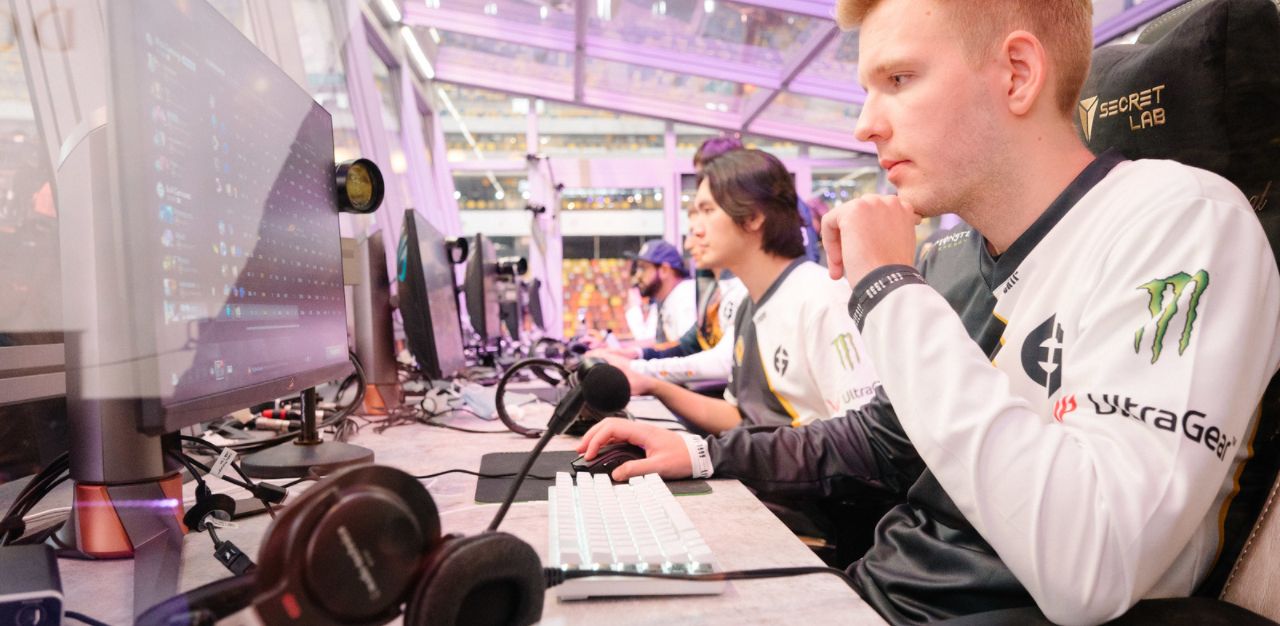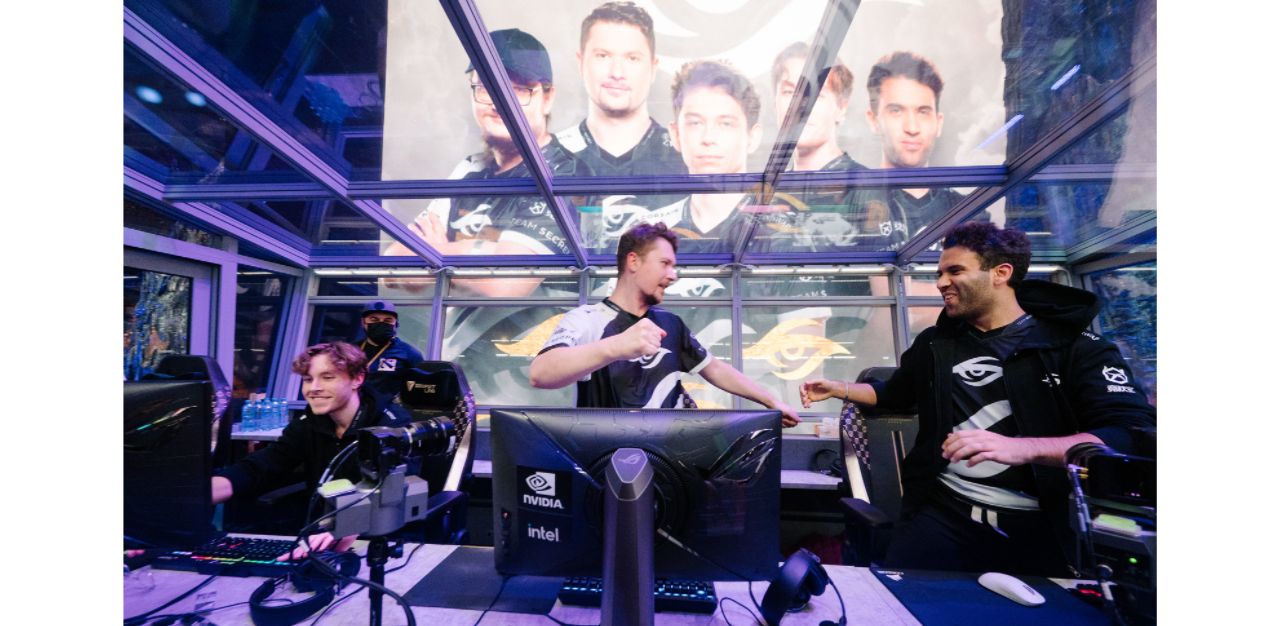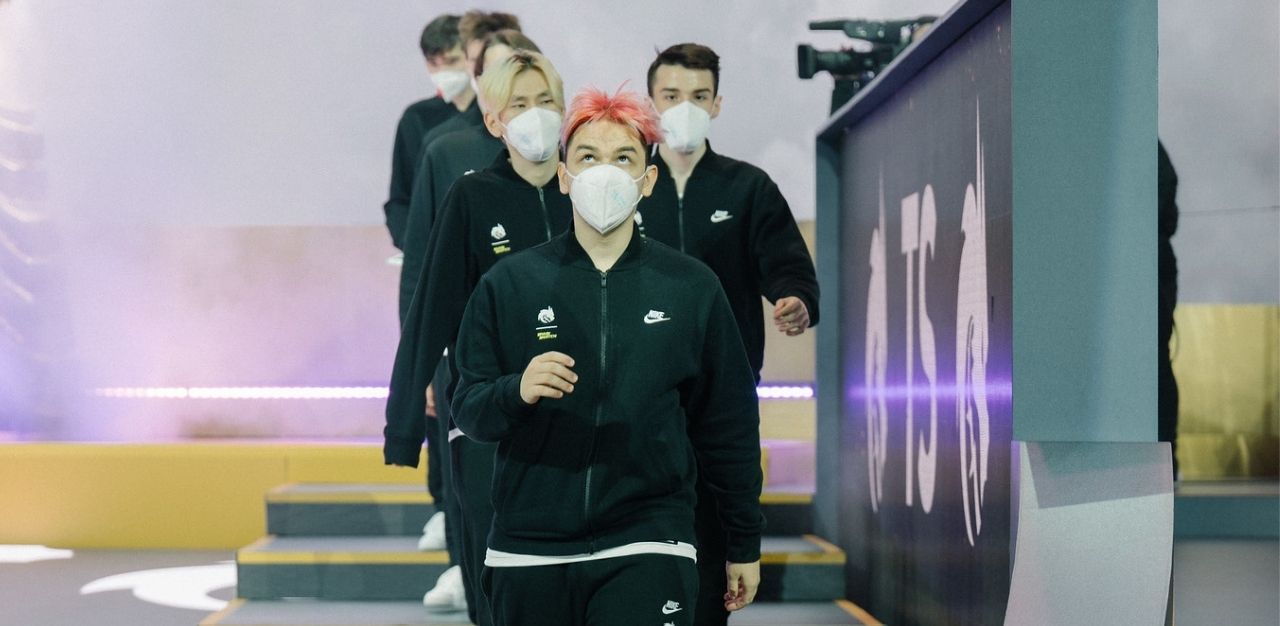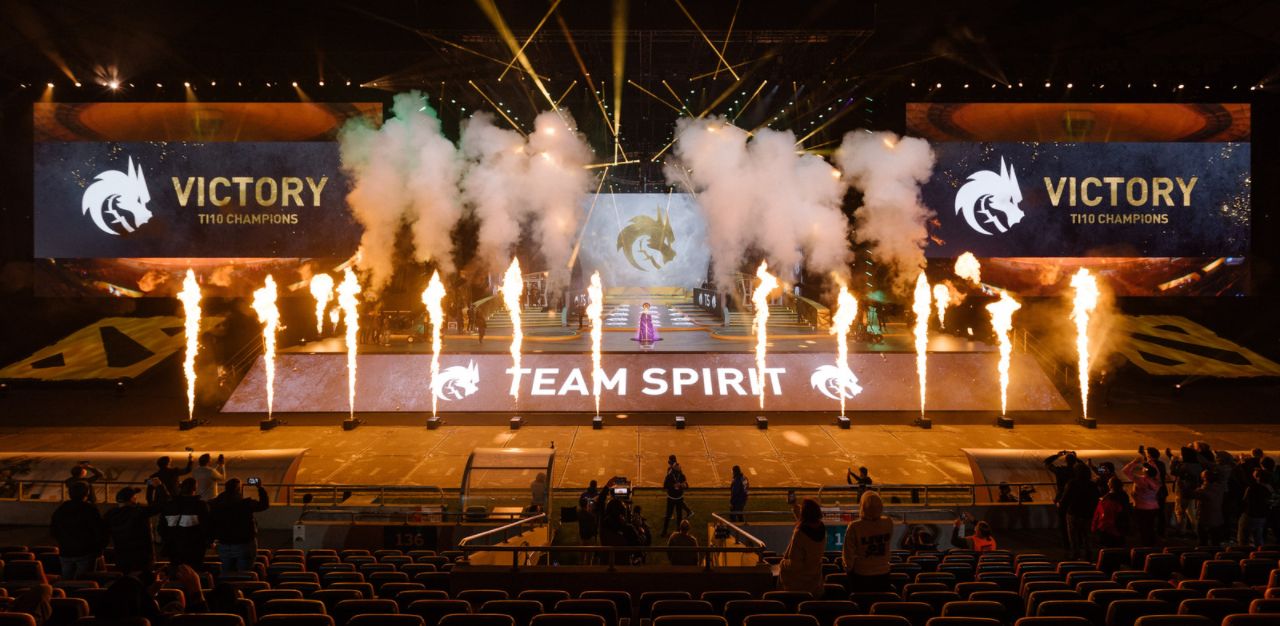Once seen as merely a fringe pursuit, esports has now become embedded in public consciousness as a bona fide competitive avenue. Nowhere has this sentiment been more apparent than at the recently-concluded The International 10 (TI10), the most lucrative esports tournament of all time.
TI10, the latest edition of the world championships of publisher Valve’s multiplayer online battle arena (MOBA) video game Dota 2, boasted a staggering total prize pool of US$40,018,195 (S$53,808,465); the tournament champions would receive US$18,208,300 (S$24,482,880). Much of the prize pool was funded through sales of Valve’s in-game Battle Passes.
A Dota 2 match is played by two opposing teams of five players: one carry, one solo mid, one offlaner, and two supports. Each player controls a “hero” – the term used for the game’s more than 100 playable characters. The objective of Dota 2 is to destroy the opponent’s Ancient – a spherical structure located in the deepest portion of enemy territory.
The run-up to TI10 had not been an easy one by any means. Just as was true of a bevy of other events, TI10 was postponed for over a year due to the Covid-19 pandemic. The tournament had originally been scheduled for August 2020 in Stockholm, Sweden.
Subsequently rescheduled to August 2021, TI10 was once again postponed after Valve encountered administrative issues regarding the tournament’s setup. As a result, it was finally held in October 2021 in Bucharest, Romania.
Truly international
Eighteen teams across six regions qualified for the showpiece tournament; 12 through the season-long Dota Pro Circuit while the remaining six advanced by winning regional qualifiers. The 90 players came from as many as 28 countries, allowing the tournament to live up to its name.
Notable contenders included Evil Geniuses, the team which was ranked #1 at the end of the Dota Pro Circuit; Invictus Gaming and PSG.LGD (who, incidentally, are indeed linked to the football team of the same name), the winners of the two most recent Dota Majors; Team Secret, whose relatively low Dota Pro Circuit ranking belied their immense talent; and OG, the reigning back-to-back TI champions in search of a third consecutive title.
Southeast Asia was represented by two teams: T1 and Fnatic. Fnatic’s roster included Yang “Deth” Wu Heng, one of two Singaporeans to participate in the tournament. The second was Daryl Koh “iceiceice” Pei Xiang of Evil Geniuses – the greatest Dota 2 player to ever come out of Singapore.

Recapping the action
Right from the first matches of the group stage, PSG.LGD established themselves as the firm favourites to lift the Aegis of Champions. With a 15-1 win-loss record in the group stage, the China-based team stormed to the #1 seed in Group B as they swept aside all in their path, one loss to Team Secret notwithstanding. Such was PSG.LGD’s dominance that they finished the group stage five wins clear of Team Secret, who would end up with the group’s #2 seed.
It was a similar story in Group A. Invictus Gaming, champions in 2012, were clearly the class of the field as they went 14-2 and only lost once apiece to OG and Team Undying. Invictus Gaming finished three wins ahead of Virtus.pro, their closest competitors in the group. Somewhat surprisingly, Evil Geniuses never even came close to peak form and only managed a 9-7 record and the #6 seed, dropping them into the lower bracket.
The early stages of the knockout phase did not see much drama, though it was notable that Evil Geniuses eliminated Elephant from the tournament in the round of 16. A ludicrously talented yet synergistically flawed team with legendary names such as Lu “Somnus” Yao and Xu “fy” Linsen and coached by Bai “rOtK” Fan, Elephant never even came close to living up to the hype.

The standout matches of the upper bracket’s first round were Team Secret vs OG and PSG.LGD vs T1. Team Secret sent OG into the lower bracket with a convincing 2-0 series victory, while PSG.LGD needed three games to see off a plucky yet ultimately overmatched T1.
Fnatic’s run at TI10 would come to an end in the lower bracket’s second round, losing 2-0 to Russia-based Team Spirit. Team Spirit would then go on to register a stunning upset victory over OG in the next round.
Perhaps the highlight of OG’s ill-fated title defence attempt came in the prior round when they knocked Quincy Crew out of the tournament. This match was highly anticipated due to the fact that it pitted brothers Syed Sumail “SumaiL” Hassan, an OG player, and Quincy Crew’s Yawar “YawaR” Hassan against each other. Though Quincy Crew made the series tougher for OG than most expected, OG nevertheless emerged with a 2-0 victory and advanced to the last eight.
T1 would beat 2013 champions Alliance 2-0 but would themselves be knocked out in the final eight, losing to Vici Gaming 2-1. In the upper bracket, PSG.LGD continued to seem unstoppable as they swept aside Virtus.pro to enter the final three for the third consecutive TI.
The other of the two second-round upper-bracket series saw Team Secret beat Invictus Gaming 2-1. This victory meant that Team Secret would finish in the top three of a TI for the first time ever.
In the subsequent lower-bracket matchups, Team Spirit beat Virtus.pro 2-1, to be the only Eastern European team left in the competition. They would play against Invictus Gaming, who beat Vici Gaming 2-0, for the opportunity to join Team Secret and PSG.LGD as one of the last three teams standing.
PSG.LGD would then handily beat Team Secret, putting them in the grand final for the second time in three TIs. In 2018, they lost in the grand final to OG in a nail-biting five-game series.

Smells like Team Spirit
Team Spirit would once again defy the odds by beating Invictus Gaming 2-0. The victory was led by Illya “Yatoro” Mulyarchuk, who made history in this series by becoming the first player to have ever recorded multiple Rampages during the knockout rounds of any TI. (A Rampage is the in-game term used when a player obtains five unanswered kills,analogous to a hat-trick in football.) A 24/1 underdog at the beginning of the tournament, Team Spirit had by now unquestionably proven that they were, in fact, genuine title contenders.
Incredibly, they weren’t done yet. The first of two series on the tournament’s final day saw Team Spirit upset Team Secret 2-1 in the lower bracket final on the back of outstanding play from Team Spirit’s Magomed “Collapse” Khalilov. His dominant performances as the hero Magnus throughout the tournament had already made him TI10’s breakout star, and he once again showcased his credentials in the deciding third game with another incredible display as Magnus to set up a grand final matchup against PSG.LGD.
Team Spirit continued to defy the odds by winning the first two games of the best-of-five grand final. However, PSG.LGD hit back by taking the next two. PSG.LGD’s Game 4 victory was especially impressive; they forced Team Spirit to surrender within 25 minutes and registered 23 kills to their opponents’ two.
During the draft stage of the decisive fifth game, PSG.LGD coach Zhang “xiao8” Ning surprised many viewers by neither banning Magnus nor choosing it for his own team. This move turned out to be a crucial mistake as Team Spirit would soundly beat PSG.LGD to claim the most unlikely of world titles.
By winning TI10, each of Team Spirit’s players picked up over US$3.6 million – a figure made even more astonishing by the fact that apart from Yaroslav “Miposhka” Naidenov, not even one of them had amassed career earnings of more than US$100,000 up to that point.
Although the biggest event of the e-sports calendar has now passed, there is still much to look forward to in the professional Dota 2 scene. A new patch to the game for further competitive balance is expected to arrive soon. Rumours about roster changes continue to circulate. Most notably of all, a recent tweet from Alliance’s official Twitter account seemed to confirm that next season’s Dota Pro Circuit will begin on November 29.
Regardless of what may be next for the Dota 2 pros, TI10 will surely be remembered as a tournament that had it all: intriguing storylines, breakout stars, memorable plays, and of course, the most unexpected champions of all time.
Join the conversations on TheHomeGround Asia’s Facebook and Instagram, and get the latest updates via Telegram.



























